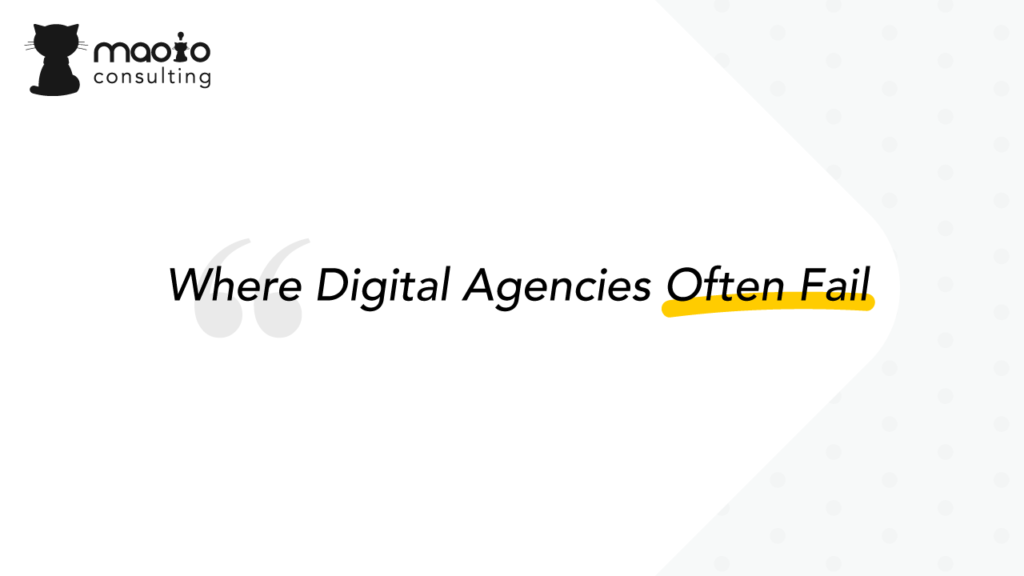NOT DEFINING PROJECT BUDGET UP-FRONT
Unfortunately, there are still a lot of clients that hesitate to disclose their budget to the agency on the initial meeting. Understanding a client’s budget is essential for developing the scope of the project, managing expectations, and helping the client build a successful business, therefore, it is essential for writing the proposal.
That is why one of the agency’s duties is to explain to a client why the “money conversation” on the initial meeting is not only necessary, but it is a solid base for a start to a healthy client-agency relationship. It will save precious time for both sides, ensure reasonable expectations, give the agency the opportunity to explain the industry prices to the client, as well as inform the client on what to expect at lower prices. Last but not least, insisting on defining the client’s budget up-front will put off “price buyers” – and let’s be honest – nobody wants those.
FREE PITCHING
Standard pitch fees for every project type are necessary for agencies. Writing serious proposals, creating concepts, ideas, and strategies for any project is a business agencies take very seriously and devote all of their creative resources. Fair pitch fees allow them to compensate for the time, dedication, and resources spent on creating a proposal.
Agencies often participate in free pitching, especially when there is a big client “on the table”, which leads to hundreds of working hours spent in hope of acquiring a client, and the problem is – those hours are not “billable” in a case of declined proposal. Participating in free pitching shows a lack of professional integrity, which is one of the most important foundations of industry standards.
ENDLESS REQUEST FOR PROPOSAL
Free pitching goes “hand in hand” with creating endless proposals. Every agency has experience with receiving requests for proposals from prospects – playing that game can lead to filing paperwork 24/7 without results. Not only is that counterproductive for the agency, but it is equally confusing and time consuming for the client.
There is a great chance your potential client received dozens of proposals from different agencies with very different approaches, and because of that, it is crucial to arrange a meeting and discuss relevant details of the project before creating a proposal. If you encounter a “hardcore” prospect which insists on a written proposal before meeting, that proposal should not be free of charge. In case of proposal acceptance, the proposal fee should be deducted from the full project price.
SELLING HOURS INSTEAD OF SOLUTIONS
Agencies often find themselves charging their clients for hours spent on creating the strategies, implementing ideas, and carrying out the project, which is absolutely the worst way to charge for your services. Defining prices based only on time spent on the project simply shouldn’t be the case when it comes to marketing agencies, because what agencies sell is not their time, but their expertise. A client shouldn’t care about how many hours your employees spent creating a strategy, plan, a website, or advertising campaign – the only thing they should care about is how well your agency delivered.
Focusing on providing your Know-How, your experience, support, and most importantly – results, instead of just billable hours, is the key to creating added value and establishing a trustworthy relationship with every client that you acquire. By selling your knowledge and expertise instead of hours, will put the agency in a much more favorable position, because you will finally start charging for the solutions you give, and not for “filling out your quota” for the month.
INFINITE REPORTING CYCLE
Reporting, reporting, reporting… Sometimes it can seem like all you do is write infinite reports for clients. Don’t get us wrong, keeping clients updated on their budgets, campaigns, results, and returns of investments is inevitable, but certainly shouldn’t be taking up half of your workday.
Don’t fall into the trap of an infinite reporting cycle, but instead, take the time to explain to your clients which reports are important and what they should be focusing on. The reports you deliver to clients should be meaningful, customized, and relevant for current campaigns. By avoiding “one size fits all” reporting, you will ensure an analytic approach to every client and in the end – save both yours and your client´s precious time.
PERFECT TIMING TO SAY NO
Although it is sometimes hard and often comes with a fear of losing a client, it is OK for agencies sometimes to say no. Industry guidelines, recommendations, and common practices are there for a reason, ensuring professional integrity. You will encounter clients who see you as a professional that you are and are willing to let you do what you do best, but – more often that not, there will be clients that love to “micromanage” and get involved with every single tiny action you take. Those are the clients that you will have to learn to say no to.
By accepting numerous client’s requests that are not a part of your initial proposal and allowing them to make strategic changes on the go, you may feel like you are keeping the client happy at the moment, but you are creating much bigger problems down the line. If you don’t agree with client marketing policies or you disagree with changes they are trying to implement, you need to speak up. In the end, the results of marketing activities are your responsibility, so learning to say no to a client’s wish is sometimes the best thing to do.
MARKETING IS NOT THE SAME AS SALES
Confusing marketing and sales is one of the most commonly made mistakes in the business world. Surely, marketing activities should, and properly done, will increase the company’s visibility, reputation, market position, and long term value, but should not be considered the same as sales. Great marketing strategy and its execution will give you more visibility and increase the number of interested potential clients, but face to face initial meeting with a potential client is what is going to “close the deal”.
Agencies often fall into the trap of promising their clients a raise in sales, but that strategy is simply wrong – the agency can only guarantee to bring potential clients to your website, online shop or physical store, but you and your sales staff are the ones responsible for sales results.
COPYCAT DOESN’T WORK
Case studies – they look great, we all love to have as many as we can, and we can all agree – they are nice to have in an agency’s portfolio. But, they will only get you so far – because every client is different, none of them are in the exact same position, and strategies that worked before are not by any means guaranteed to work again.
Marketing strategy needs to consider every possible detail related to a specific client – all of the client’s past and current problems, weak spots, goals, desires, and their position in comparison with their competitors. Relying solely on “textbook strategies” or examples from previous case studies won’t get you far and will end in wasting your client’s money.
CHASING THE BIG WHITE WHALE
“Shoot for the moon…” We all know that saying, and there is nothing wrong with wanting more for your company. You want bigger clients, bigger retainer fees, and quicker growth of your company’s revenue. But if most of your time is spent looking for bigger deals and chasing that “big white whale”, your focus is completely wrong. First of all, there are only so many huge companies with enormous budgets on the market, and eventually, you will realize that focusing solely on closing the deal with one of them won’t get you far. What is actually going to help your agency strive is focusing on SMB level with a reliable income.
Not only those clients are going to be more open for making necessary changes and implementing new ideas, but they will allow you to show your expertise much better and sooner. Their decision-making process is quicker, and you can usually talk to the director and/or owner themselves and align your “game plan” perfectly with their short-term and long-term marketing goals. By focusing on small and medium businesses, you can provide effective results and optimize the usage of clients and your resources.
WORKING SOLELY FOR PERCENTAGE FEE
Don’t get us wrong, agreeing to work for a percentage of sales revenue is not the problem, relying solely on that source of income is the problem. Marketing agency is responsible for marketing activities and their results, but it doesn’t control the entire sales process; therefore, it cannot be “punished” for the mistakes of the sales team. Working solely for a percentage of sales can function only in a scenario in which the agency has full control over the marketing and sales process.
Otherwise, the agency’s fee depends on the results of other people’s work, over which they have no control. In order for the “percentage fee” model to work for both sides, the agency has to have the control over the entire process, from creating strategies, to implementing them and making necessary changes on the go. Even then, the agencies shouldn’t base more than 10% of their income on clients who pay exclusively based on sales percentage.


